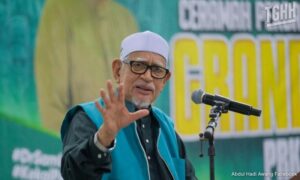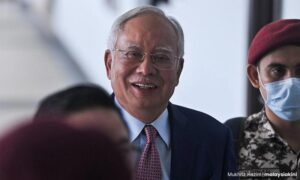By Vincent Tan | Channel News Asia
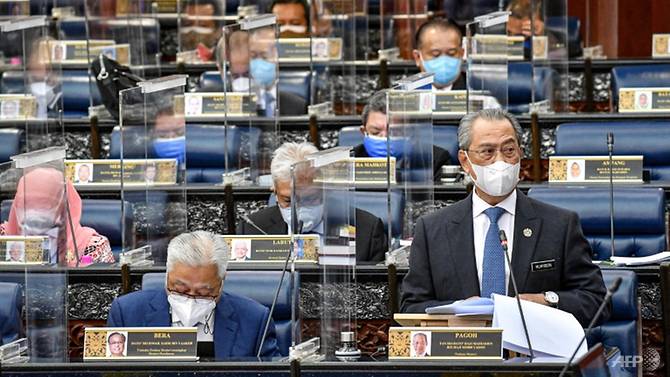
The five-day special parliamentary meeting which began last Monday (Jul 26) was supposed to allow the Malaysian government to brief lawmakers about its COVID-19 response and pave the way for an eventual hybrid parliament sitting.
However, the proceedings were overshadowed by an announcement by de facto law minister Takiyuddin Hassan that the Emergency Ordinances introduced during the State of Emergency had been revoked on Jul 21. The State of Emergency ended on Aug 1.
In a rare reprimand, the palace said that the government had revoked the ordinances without the king’s consent. “His Majesty stressed that the minister’s statement in the Parliament on Jul 26 is not accurate and has misled the MPs,” it said.
The Prime Minister’s Office (PMO), however, has maintained that its actions were in accordance with Malaysia’s laws and Constitution.
Mr Takiyuddin had promised to address concerns over the revocation on Aug 2 — the last day of the special Parliament meeting – but the meeting was postponed following the detection of COVID-19 cases in the House.
On Monday, opposition Members of Parliament (MPs) gathered at Merdeka Square to demand Mr Muhyiddin’s resignation.
Here’s what you need to know about the different positions adopted on the revocation of Emergency Ordinances, and the implications for the ruling coalition:
The monarch’s constitutional role
In a statement last week, the palace said King Al-Sultan Abdullah Ri’ayatuddin Al-Mustafa Billah Shah was disappointed that his earlier consent to the suggestion of tabling and debating the Emergency Ordinances in the Parliament was not implemented.
Malaysian Bar Council member New Sin Yew opined that the king’s position was correct, that the instruments to revoke the Emergency Ordinances had to be tabled before the House of Representatives.
“It is implicit in Article 150(3) that once Parliament sits, the Proclamation of Emergency and the Ordinances made thereunder must be laid before the House for a vote. The government does not have the discretion to do otherwise,” Mr New said.
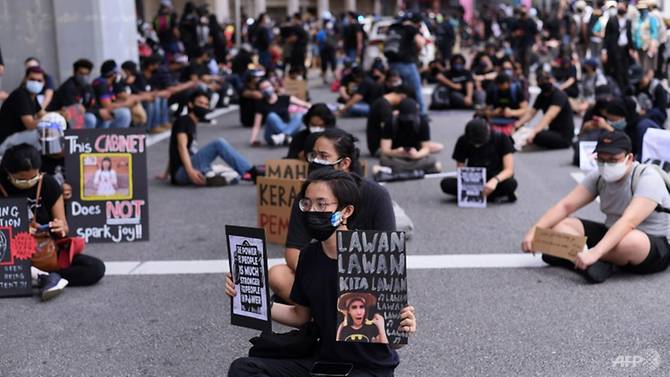
Article 150(3) in Malaysia’s Federal Constitution states that a Proclamation of Emergency and Ordinances promulgated under it shall be laid before both Parliament houses and if not revoked earlier, shall cease to have effect if both houses pass resolutions to annul them.
“Any revocation must be done before Parliament sits. Once Parliament is in session and no revocation has taken place, only Parliament can annul the ordinances. Otherwise, the words ‘if not sooner revoked’ in Article 150(3) becomes obsolete,” Mr New said.
Mr New pointed out that although Malaysia’s State of Emergency lapsed on Aug 1, the Emergency Ordinances promulgated under the Emergency are still in effect for another six months under Article 150(7) of the Federal Constitution.
The king, Mr New said, could also refer the question on whether Article 150(3) allowed the government to revoke Emergency Ordinances once Parliament sits to Malaysia’s apex Federal Court.
Parliamentary affairs observer and researcher Ong Ooi Heng said there were conflicting views over the king’s role, based on the statements by the two institutions on the revocation of the ordinances.
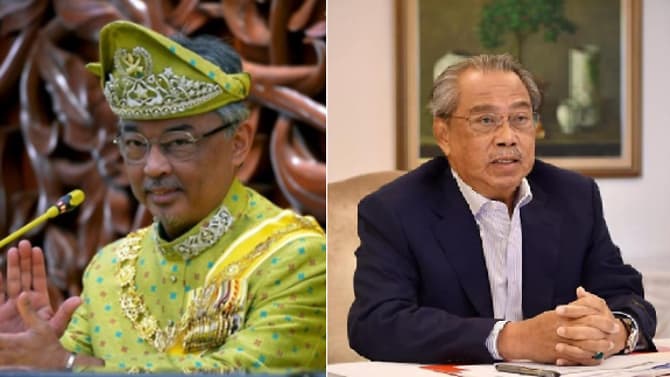
“A question arises as to whether the king is merely playing a rubber stamp role, or his assent to revoke the Emergency Ordinances is a necessary, constitutional step? The Prime Minister’s Office seems to think the former, but the palace thinks otherwise,” he said.
However, looking at the developments in recent months, and reading together the statements by the king on Jun 16 (calling for Parliament to reconvene) and Jul 29, it appeared that prime minister was fast losing the confidence of the palace, Mr Ong, who is former chief coordinator for the Backbenchers Council in the Malaysian Parliament, added.
Were the revocations done constitutionally?
The Prime Minister’s Office has pointed out that the Cabinet had already advised the king to repeal the ordinances before the special Parliament meeting kicked off.
“His Majesty is aware that he has to accept and act in accordance with the Cabinet’s advice, as provided for in Article 40 of the Federal Constitution,” according to PMO.
The government’s view is that the Emergency Ordinances do not have to be annulled at the Parliament, since the Cabinet had already advised the king to revoke them, it added.
Mr New said that despite Mr Takiyuddin’s statement last Monday that the Emergency Ordinances have been revoked, this was not so.
“Revocation is a legislative act that requires legal rules to be followed. The authority to revoke the ordinances is the same authority that made them – the king,” Mr New said.
Adding that there was no evidence that the king had revoked the ordinances, Mr New explained that the king had to act on the advice of Cabinet, and the king had to be presented with the revocation to agree with the same.
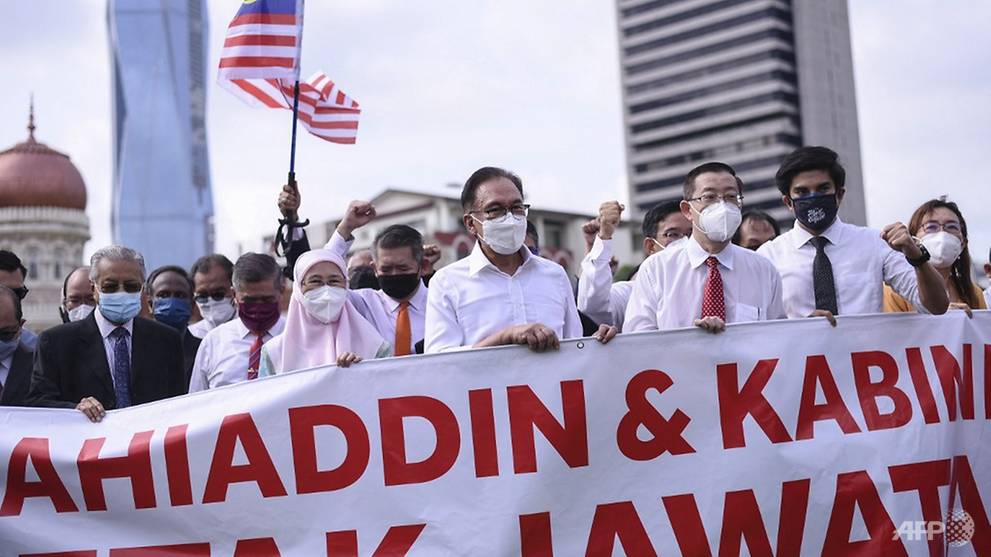
“The Cabinet cannot act on its own and bypass the king. In addition, the revocation instrument must also be published in the government’s Federal Gazette, and only then shall it take effect and come into operation as law on the date of such publication. This was not done,” he noted.
Political scientist Professor Ahmad Fauzi Abdul Hamid from Universiti Sains Malaysia said that while the PMO’s assumption regarding the king’s role was correct according to the Constitution, the king held a linchpin role in Malaysia’s system of government as a constitutional monarch with symbolic importance.
“He is not just a rubber stamp. If he’s going to be a rubber stamp, you might as well abolish the monarchy system, and that strikes at the very heart of the Malay community,” Prof Ahmad Fauzi commented.
In the Parliament last week, opposition MPs had pointed out the confusion that arose over whether the Emergency Ordinances have been officially revoked. The validity of compounds issued for offences under the ordinances was among the questions raised.
Mr New said the public should still obey the Ordinances and treat them as being in effect.
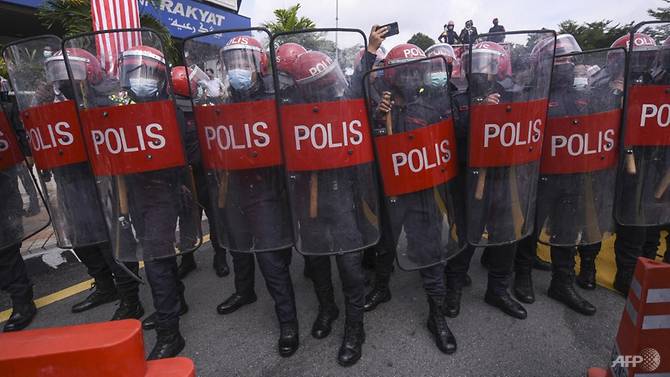
Tenuous grip on power
Prof Ahmad Fauzi commented that the current situation is unlike previous confrontations between the institutions of Malay royalty and the executive as happened during the 1980s and 1990s under Mr Muhyiddin’s predecessor Dr Mahathir Mohamad.
“Back then, there were excesses by the rulers, the people were angry and also the economy was strong. Now, the economy is down, and the king’s prestige has increased very much by wanting things to be done constitutionally,” he said.
“If you look on social media, even traditionally right-wing Malay groups are unsettled by the Perikatan Nasional government’s treatment towards the monarchy. (This is in contrast to) back when PN was formed last year, these groups fervently supported PN as Malay-Muslim defenders,” the academic added.
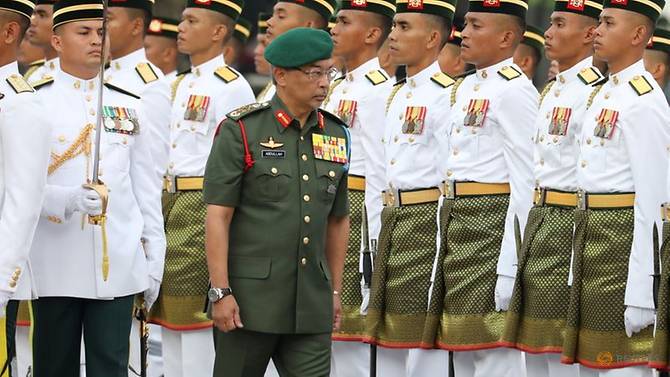
Mr Ong and Prof Ahmad Fauzi also questioned the wisdom of the government in not laying forth the Emergency Ordinances for debate, saying this would have garnered support across the political aisle, as the opposition had previously said they were not in favour of the State of Emergency being extended.
“I think Mr Muhyiddin would have stood a very good chance of the votes going his way in revoking the Emergency Ordinances.”
“But this just reflects the fear of the government to go to any vote, and this has been dogging the government since its formation. With the 2021 Budget or any Bill, they are afraid because the majority is very small, and with some behaviour of some maverick MPs, you can never be sure of the majority,” he added.
Mr Ong pointed out that possibly, from Mr Muhyiddin’s point of view, the agenda was set to be only briefings by the ministers, and to block any other motions, including potentially a no-confidence vote.
“Because if you allow for debate on the motion of the ordinances, then it’s quite difficult for you to block other motions. In the current political scenario, it’s best not to have any debate, any decisions taken,” he added.
Mr Ong added that it was highly possible that the king might call for a special rulers’ conference to discuss the issue in the coming weeks.
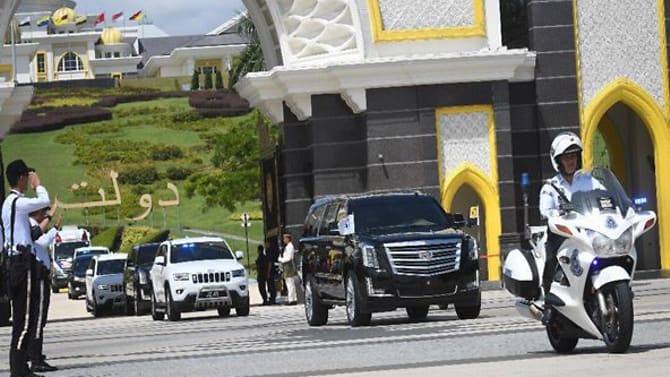
“If it doesn’t happen, that might mean that His Majesty is leaving it up for government and opposition to sort it out among themselves. But if they do meet, and there are statements issued after that, then the pressure on Mr Muhyiddin to either resign, or test his majority in Parliament, will be immense and imperative,” he said.

